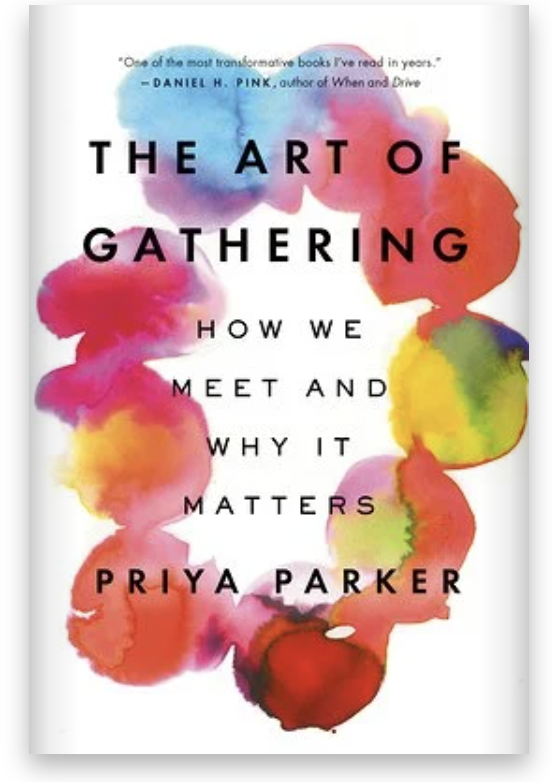
2025 Stewardship Summit Book List
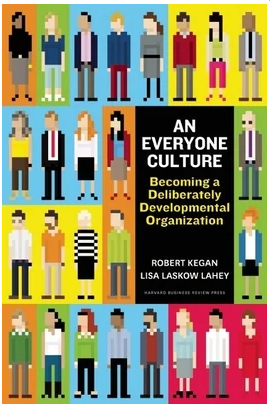
An Everyone Culture: Becoming a Deliberately Developmental Organization: Robert Kegan
Outlines the concept of the Deliberately Developmental Organization (DDO), foundational to the design of the Director’s Stewardship Summit
A Radical New Model for Unleashing Your Company’s Potential
In most organizations nearly everyone is doing a second job no one is paying them for–namely, covering their weaknesses, trying to look their best, and managing other people’s impressions of them. There may be no greater waste of a company’s resources. The ultimate cost: neither the organization nor its people are able to realize their full potential.
What if a company did everything in its power to create a culture in which everyone–not just select “high potentials”–could overcome their own internal barriers to change and use errors and vulnerabilities as prime opportunities for personal and company growth?
Robert Kegan and Lisa Lahey (and their collaborators) have found and studied such companies–Deliberately Developmental Organizations. A DDO is organized around the simple but radical conviction that organizations will best prosper when they are more deeply aligned with people’s strongest motive, which is to grow. This means going beyond consigning “people development” to high-potential programs, executive coaching, or once-a-year off-sites. It means fashioning an organizational culture in which support of people’s development is woven into the daily fabric of working life and the company’s regular operations, daily routines, and conversations.
An Everyone Culture dives deep into the worlds of three leading companies that embody this breakthrough approach. It reveals the design principles, concrete practices, and underlying science at the heart of DDOs–from their disciplined approach to giving feedback, to how they use meetings, to the distinctive way that managers and leaders define their roles. The authors then show readers how to build this developmental culture in their own organizations.
This book demonstrates a whole new way of being at work. It suggests that the culture you create is your strategy–and that the key to success is developing everyone.
Half a Shade Braver: The Foundations of Conversational Leadership: David Whyte
Builds on Day 1: Leading from the Inside Out –
Conversational Leadership Keynote
The essence of leadership is visibility, our willingness to be seen, to be vulnerable, and to risk ourselves. To step into a leadership role is to hazard ourselves in the world, both for others and for something we can’t fully articulate. In this talk given in Sydney, Australia, poet, author and organizational consultant David Whyte tells us vulnerability can be understood not as a weakness, but rather as a faculty of perception, illuminating the universal, human necessity of asking for help. He explores the qualities necessary to enable leaders to be both seen and heard, understand what is no longer relevant, and creatively engage the horizon.
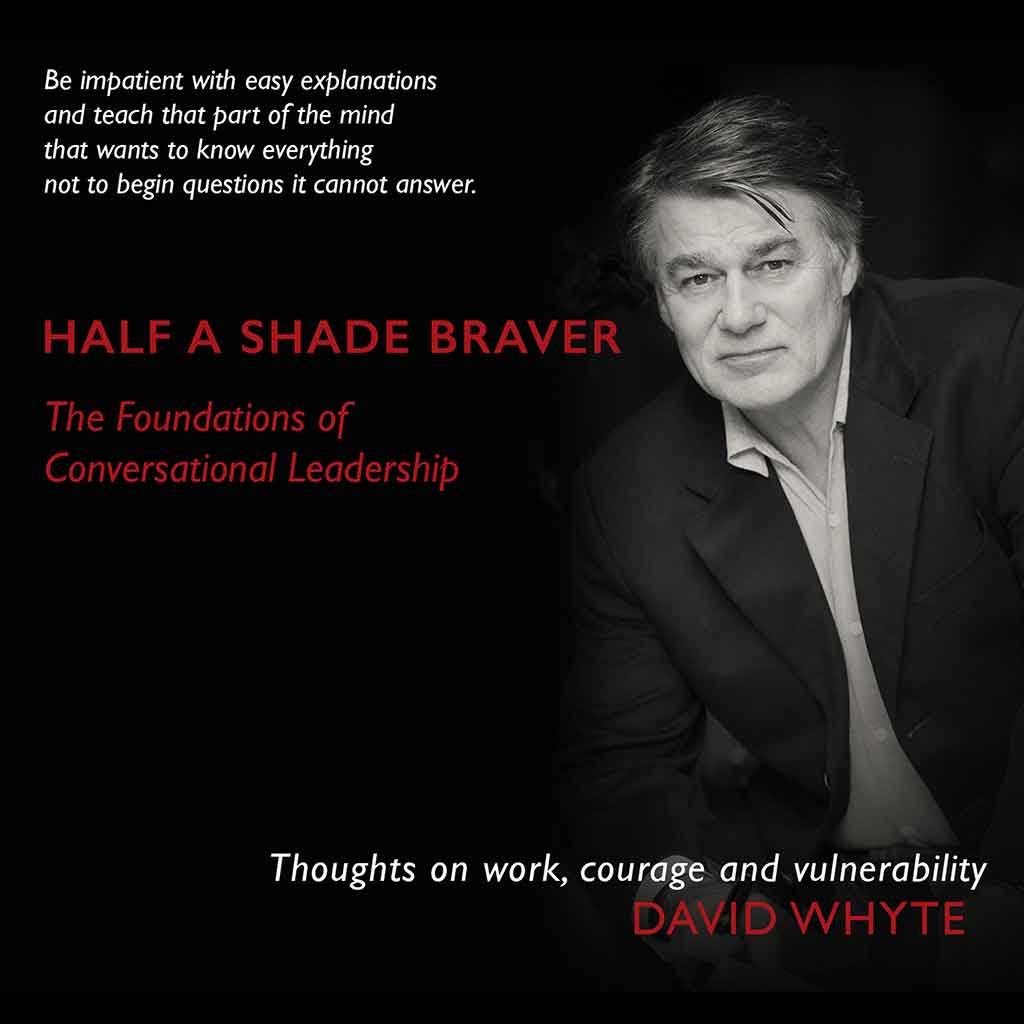

Crossing the Unknown Sea: David Whyte
Builds on Day 1: Leading from the Inside Out –
Conversational Leadership Keynote
Crossing the Unknown Sea is about reuniting the imagination with our day to day lives. It shows how poetry and practicality, far from being mutually exclusive, reinforce each other to give every aspect of our lives meaning and direction. For anyone who wants to deepen their connection to their life’s work—or find out what their life’s work is—this book can help navigate the way.
Whyte encourages readers to take risks at work that will enhance their personal growth, and shows how burnout can actually be beneficial and used to renew professional interest. He asserts that too many people blindly trudge through a mediocre work life because so many “busy” tasks prevent significant reflection and analysis of job satisfaction. People often turn to spiritual practice or religion to nurture their souls, but overlook how work can actually be our greatest opportunity for discovery and growth. Crossing the Unknown Sea combines poetry, gifted storytelling and Whyte’s personal experience to reveal work’s potential to fulfill us and bring us closer to ultimate freedom and happiness.
Dare to Lead: Brave Work. Tough Conversations. Whole Hearts: Brené Brown
Builds on Day 1: Leading from the Inside Out –
Science of Self-Management //Dare to Lead Inventory Workshop
Leadership is not about titles, status, and wielding power. A leader is anyone who takes responsibility for recognizing the potential in people and ideas, and has the courage to develop that potential.
When we dare to lead, we don’t pretend to have the right answers; we stay curious and ask the right questions. We don’t see power as finite and hoard it; we know that power becomes infinite when we share it with others. We don’t avoid difficult conversations and situations; we lean into vulnerability when it’s necessary to do good work.
But daring leadership in a culture defined by scarcity, fear, and uncertainty requires skill-building around traits that are deeply and uniquely human. The irony is that we’re choosing not to invest in developing the hearts and minds of leaders at the exact same time as we’re scrambling to figure out what we have to offer that machines and AI can’t do better and faster. What can we do better? Empathy, connection, and courage, to start.
Four-time #1 New York Times bestselling author Brené Brown has spent the past two decades studying the emotions and experiences that give meaning to our lives, and the past seven years working with transformative leaders and teams spanning the globe. She found that leaders in organizations ranging from small entrepreneurial startups and family-owned businesses to nonprofits, civic organizations, and Fortune 50 companies all ask the same question:
How do you cultivate braver, more daring leaders, and how do you embed the value of courage in your culture?
In this new book, Brown uses research, stories, and examples to answer these questions in the no-BS style that millions of readers have come to expect and love.
Brown writes, “One of the most important findings of my career is that daring leadership is a collection of four skill sets that are 100 percent teachable, observable, and measurable. It’s learning and unlearning that requires brave work, tough conversations, and showing up with your whole heart. Easy? No. Because choosing courage over comfort is not always our default. Worth it? Always. We want to be brave with our lives and our work. It’s why we’re here.”
Whether you’ve read Daring Greatly and Rising Strong or you’re new to Brené Brown’s work, this book is for anyone who wants to step up and into brave leadership.

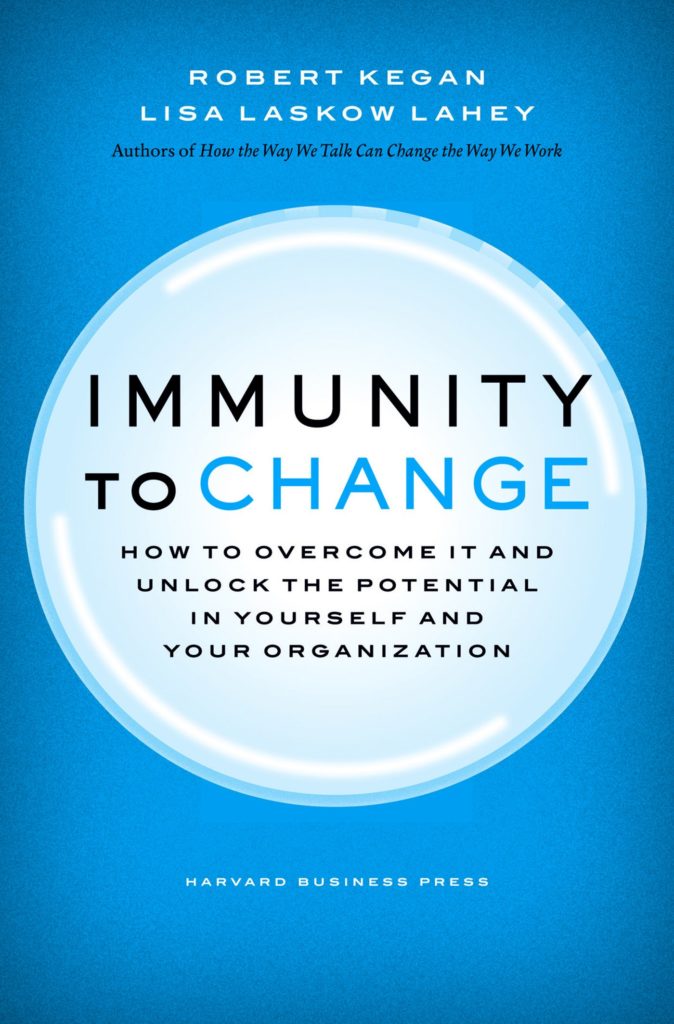
Immunity to Change: Robert Kegan & Lisa Lahey
Builds on Day 1: Leading from the Inside Out –
Immunity to Change Keynote
A recent study showed that when doctors tell heart patients they will die if they don’t change their habits, only one in seven will be able to follow through successfully. Desire and motivation aren’t enough: even when it’s literally a matter of life or death, the ability to change remains maddeningly elusive. Given that the status quo is so potent, how can we change ourselves and our organizations?In Immunity to Change, authors Robert Kegan and Lisa Lahey show how our individual beliefs–along with the collective mind-sets in our organizations–combine to create a natural but powerful immunity to change. By revealing how this mechanism holds us back, Kegan and Lahey give us the keys to unlock our potential and finally move forward. And by pinpointing and uprooting our own immunities to change, we can bring our organizations forward with us.
This persuasive and practical book, filled with hands-on diagnostics and compelling case studies, delivers the tools you need to overcome the forces of inertia and transform your life and your work.
Positive Intelligence: Shirzad Chamine
Builds on Day 1: Leading from the Inside Out –
Positive Intelligence & Immunity to Change Keynotes
In his popular Stanford University lectures, Shirzad Chamine reveals how to achieve one’s true potential for both professional success and personal fulfillment. His groundbreaking research exposes ten well-disguised mental Saboteurs. Nearly 95 percent of the executives in his Stanford lectures conclude that these Saboteurs cause “significant harm” to achieving their true potential. With Positive Intelligence, you can learn the secret to defeating these internal foes. Positive Intelligence (PQ)SM measures the percentage of time your mind is serving you as opposed to sabotaging you. While your IQ and EQ (emotional intelligence) contribute to your maximum potential, it is your PQ that determines how much of that potential you actually achieve.
The great news is that you can improve your PQ significantly in as little as 21 days. With higher PQ, teams and professionals ranging from leaders to salespeople perform 30 to 35 percent better on average. Importantly, they also report being far happier and less stressed. The breakthrough tools and techniques in this book have been refined over years of coaching hundreds of CEOs and their executive teams. Shirzad tells many of their remarkable stories, showing how you too can take concrete steps to unleash the vast, untapped powers of your mind.
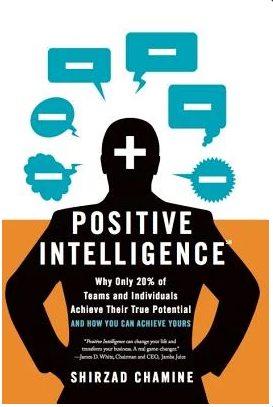
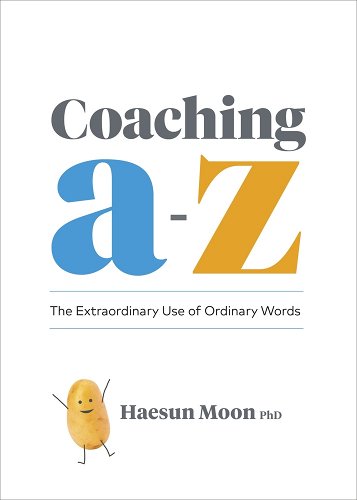
Coaching A – Z: Haesun Moon
Builds on Day 2: Building High-Impact Teams & Cultivating Communities of Trust – Leader as Coach Keynote
Your indispensable guide for coaching mastery.
Language is a powerful tool that can unite, engage, and move people to action. It’s all in what you choose to say, and how you say it.
In this practical, accessible guide to having more powerful conversations, leading evidence-based coaching expert Haesun Moon offers a set of powerful words or phrases–one for every letter of the alphabet–to help you move others toward greater purpose and accomplishment. Based on her extensive research with the University of Toronto and Harvard Medical School, Moon shows you how to apply each of these concepts to transform the way you relate to others and empower them to strive for and achieve better outcomes. Each entry includes an inspiring real-life example, and reflection questions to help you put it into action in your own life and in the lives of people around you.
Whether you’re a leader in business, education, healthcare, the public or non-profit sector–or even in your family–the ability to coach others and support them in achieving their goals is an integral skill one of the most important skills you can master. A guide to return to again and again, Coaching A-Z is an indispensable tool for anyone seeking to master the art of coaching and leadership.
Rule Makers, Rule Breakers: Tight and Loose Cultures and the Secret Signals That Direct Our Lives: Michele Gelfand
Builds on Day 2: Building High-Impact Teams & Cultivating Communities of Trust – Management through Cultural Awareness
A celebrated social psychologist offers a radical new perspective on cultural differences that reveals why some countries, cultures, and individuals take rules more seriously and how following the rules influences the way we think and act. In Rule Makers, Rule Breakers, Michele Gelfand, “an engaging writer with intellectual range” (TheNew York Times Book Review), takes us on an epic journey through human cultures, offering a startling new view of the world and ourselves. With a mix of brilliantly conceived studies and surprising on-the-ground discoveries, she shows that much of the diversity in the way we think and act derives from a key difference–how tightly or loosely we adhere to social norms. Just as DNA affects everything from eye color to height, our tight-loose social coding influences much of what we do.
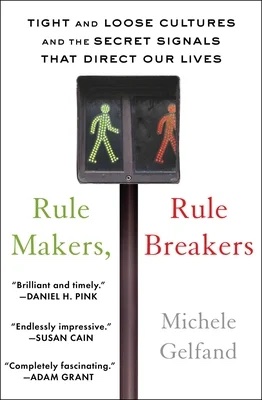
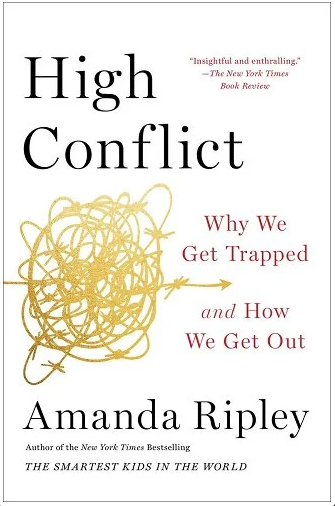
High Conflict Why we Get Trapped and How We Get Out: Amanda Ripley
Builds on Day 2: Building High-Impact Teams & Cultivating Communities of Trust – Good Conflict
When we are baffled by the insanity of the “other side”–in our politics, at work, or at home–it’s because we aren’t seeing how the conflict itself has taken over.
That’s what “high conflict” does. It’s the invisible hand of our time. And it’s different from the useful friction of healthy conflict. That’s good conflict, and it’s a necessary force that pushes us to be better people.
High conflict is what happens when discord distills into a good-versus-evil kind of feud, the kind with an us and a them. In this state, the brain behaves differently. We feel increasingly certain of our own superiority, and everything we do to try to end the conflict, usually makes it worse. Eventually, we can start to mimic the behavior of our adversaries, harming what we hold most dear.
In this “compulsively readable” (Evan Osnos, National Book Award-winning author) book, New York Times bestselling author and award-winning journalist Amanda Ripley investigates how good people get captured by high conflict–and how they break free.
Our journey begins in California, where a world-renowned conflict expert struggles to extract himself from a political feud. Then we meet a Chicago gang leader who dedicates his life to a vendetta–only to realize, years later, that the story he’d told himself about the conflict was not quite true. Next, we travel to Colombia, to find out whether thousands of people can be nudged out of high conflict at scale. Finally, we return to America to see what happens when a group of liberal Manhattan Jews and conservative Michigan corrections officers choose to stay in each other’s homes in order to understand one another better, even as they continue to disagree.
All these people, in dramatically different situations, were drawn into high conflict by similar forces, including conflict entrepreneurs, humiliation, and false binaries. But ultimately, all of them found ways to transform high conflict into good conflict, the kind that made them better people. They rehumanized and recatego-rized their opponents, and they revived curiosity and wonder, even as they continued to fight for what they knew was right.
People do escape high conflict. Individuals–even entire communities–can short-circuit the feedback loops of outrage and blame, if they want to. This is an “insightful and enthralling” (The New York Times Book Review) book–and a mind-opening new way to think about conflict that will transform how we move through the world.
Power, for All – How It Really Works and Why It’s Everyone’s Business: Julie Battilana & Tiziana Casciaro
Builds on Day 2: Building High-Impact Teams & Cultivating Communities of Trust – Power Dynamics on Teams Keynote
Discover how to gain (and keep) power in any situation with this “remarkably insightful read on what power is, how it’s gained, and how it can be used for good” (Adam Grant, bestselling author of Think Again).
Power is one of the most misunderstood–and therefore vilified–concepts in our society. Many assume power is predetermined by personality or wealth, or that it’s gained by strong-arming others. You might even write it off as “dirty” and want nothing to do with it. But by staying away from power, you give it up to someone else who may not have your best interest in mind. We must understand and use our power to have impact, and pioneering researchers Julie Battilana and Tiziana Casciaro provide the playbook for doing so in Power, for All.
Battilana and Casciaro offer a “necessary” (Tarana Burke, creator of the #MeToo movement and bestselling author of Unbound) and “invaluable” (David Gergen, CNN political analyst) vision of power: the ability to influence someone else’s behavior. This influence is derived from having access to valued resources, and once you understand what those are, you can take action to improve life for yourself and others.
With proven strategies of agitating, innovating, and orchestrating change, Power, for All shows how those with less power can challenge established structures to make them more balanced. The authors teach you how to power-map your workplace to find who can create real change at work, plan for and cause sustaining shifts, and understand the two basic needs all human beings share–safety and self-esteem–and the resources people seek to satisfy those needs: money and status, but also autonomy, achievement, affiliation, and mortality. They explore how these dynamics play out through vivid storytelling: as Donatella Versace successfully leads her brother’s company after his death–despite having a title, but little influence; what social movements can learn from youth climate activists and how they can go farther; and how a manager can gain the trust of skeptical employees and improve the workplace.
Power, for All demystifies the essential mechanisms for acquiring and using power for all people.
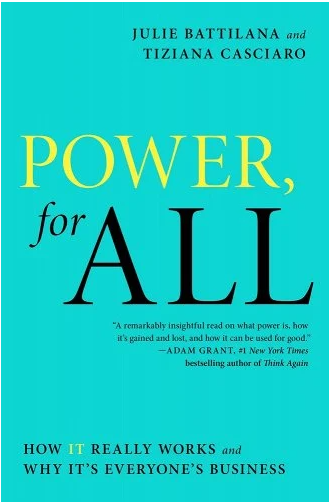
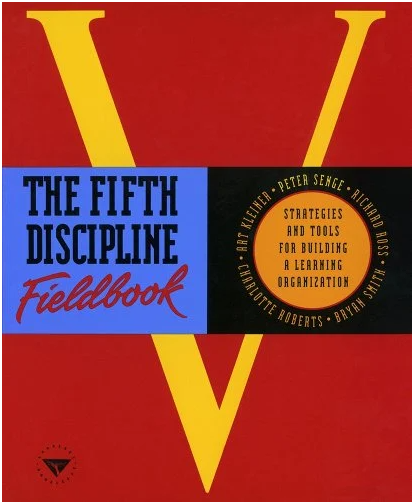
The Fifth Discipline Fieldbook: Strategies and Tools for Building a Learning Organization: Peter Senge
Builds on Day 3: Evolving as an Organization – Systems Thinking Keynote
Senge’s best-selling “The Fifth Discipline” led “Business Week” to dub him the “new guru” of the corporate world; here he offers executives a step-by-step guide to building “learning organizations” of their own.
The Fifth Discipline Fieldbook: The Art & Practice of the Learning Organization: Peter Senge
Builds on Day 3: Evolving as an Organization – Systems Thinking Keynote
This revised edition of the bestselling classic is based on fifteen years of experience in putting Peter Senge’s ideas into practice. As Senge makes clear, in the long run the only sustainable competitive advantage is your organization’s ability to learn faster than the competition. The leadership stories demonstrate the many ways that the core ideas of the Fifth Discipline, many of which seemed radical when first published, have become deeply integrated into people’s ways of seeing the world and their managerial practices.Senge describes how companies can rid themselves of the learning blocks that threaten their productivity and success by adopting the strategies of learning organizations, in which new and expansive patterns of thinking are nurtured, collective aspiration is set free, and people are continually learning how to create the results they truly desire.Mastering the disciplines Senge outlines in the book will:
– Reignite the spark of genuine learning driven by people focused on what truly matters
– Bridge teamwork into macrocreativity
– Free you of confining assumptions and mindsets
– Teach you to see the forest and the trees
– End the struggle between work and personal timeThis updated edition contains more than one hundred pages of new material based on interviews with dozens of practitioners at companies such as BP, Unilever, Intel, Ford, HP, and Saudi Aramco and organizations such as Roca, Oxfam, and The World Bank.
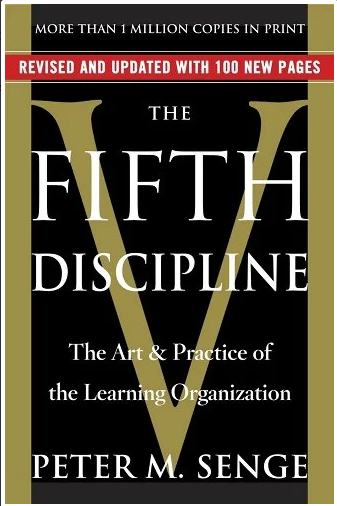
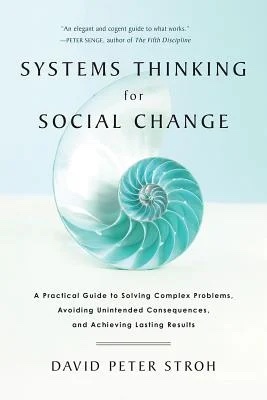
Systems Thinking for Social Change: A Practical Guide to Solving Complex Problems, Avoiding Unintended Consequences, and Achieving Lasting Results: David Peter Stroh
Builds on Day 3: Evolving as an Organization – Systems Thinking Keynote
Donors, leaders of nonprofits, and public policy makers usually have the best of intentions to serve society and improve social conditions. But often their solutions fall far short of what they want to accomplish and what is truly needed. Moreover, the answers they propose and fund often produce the opposite of what they want over time. We end up with temporary shelters that increase homelessness, drug busts that increase drug-related crime, or food aid that increases starvation. How do these unintended consequences come about and how can we avoid them? By applying conventional thinking to complex social problems, we often perpetuate the very problems we try so hard to solve, but it is possible to think differently, and get different results. Systems Thinking for Social Change enables readers to contribute more effectively to society by helping them understand what systems thinking is and why it is so important in their work. It also gives concrete guidance on how to incorporate systems thinking in problem solving, decision making, and strategic planning without becoming a technical expert.
The Art of Gathering – How We Meet and Why it Matters: Priya Parker
From the host of the New York Times podcast Together Apart, an exciting new approach to how we gather that will transform the ways we spend our time together–at home, at work, in our communities, and beyond.
In The Art of Gathering, Priya Parker argues that the gatherings in our lives are lackluster and unproductive–which they don’t have to be. We rely too much on routine and the conventions of gatherings when we should focus on distinctiveness and the people involved. At a time when coming together is more important than ever, Parker sets forth a human-centered approach to gathering that will help everyone create meaningful, memorable experiences, large and small, for work and for play.
Drawing on her expertise as a facilitator of high-powered gatherings around the world, Parker takes us inside events of all kinds to show what works, what doesn’t, and why. She investigates a wide array of gatherings–conferences, meetings, a courtroom, a flash-mob party, an Arab-Israeli summer camp–and explains how simple, specific changes can invigorate any group experience.
The result is a book that’s both journey and guide, full of exciting ideas with real-world applications. The Art of Gathering will forever alter the way you look at your next meeting, industry conference, dinner party, and backyard barbecue–and how you host and attend them.
